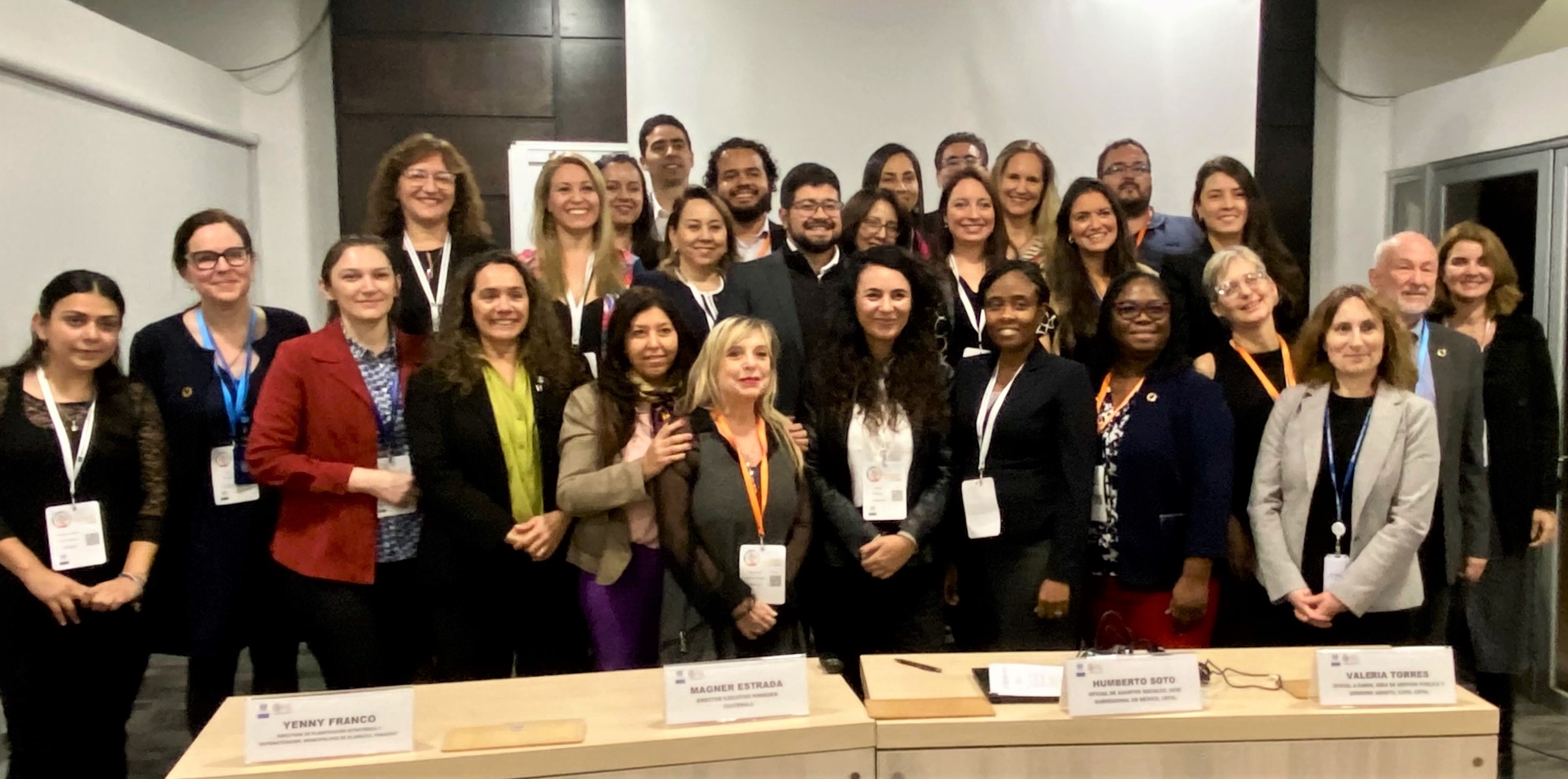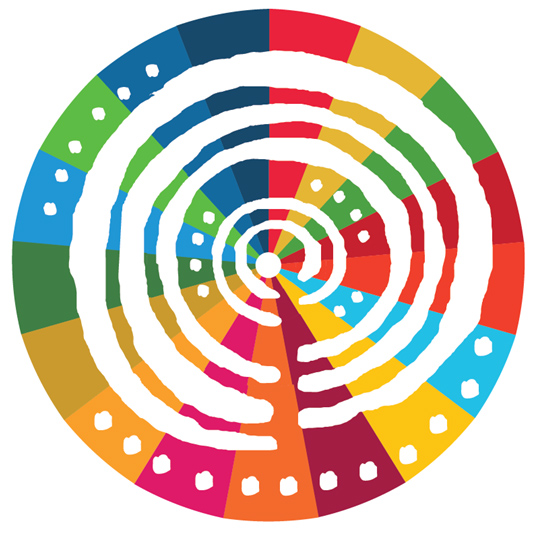Side event: Localization of the Sustainable Development Goals and the Role of Voluntary Local Reviews in the Latin America and Caribbean Region
Teaser
The main goal of the side event was to share good practices and experiences, as well as innovative approaches to overcoming challenges faced in the formulation and preparation of the VLRs to implement and monitor the 2030 Agenda at local level, and to improve vertical integration at local, national, regional and global levels.
Event information

Date
27 Apr 2023 - 12:15Event type
Within the framework of the Sixth Meeting of the Forum of the Countries of Latin America and the Caribbean on Sustainable Development held in person at the headquarters of the Economic Commission for Latin America and the Caribbean (ECLAC) in Santiago, from 25 to 28 April, 2023, under the Chairship of Argentina, ECLAC, the United Nations Department of Economic and Social Affairs (DESA) and the Office of the Resident Coordinator in Paraguay organized a side event on Localization of the Sustainable Development Goals and the Role of Voluntary Local Reviews in the Latin America and Caribbean Region.
BACKGROUND
The countries of the LAC region have appropriated the 2030 Agenda for Sustainable Development as a State commitment, in broad cooperation with multiple actors, including civil society, youth, the private sector, academia, local authorities and legislative authorities, among others. While Voluntary National Reviews (VNRs) continue to be the main mechanism for reviewing progress and challenges in implementing the 2030 Agenda, as part of their efforts to localize the 2030 Agenda, local and regional governments are increasingly engaging in subnational reviews of their SDG implementation, also called Voluntary Local Reviews (VLRs). While the 2030 Agenda does not mandate these reports, the process of preparing them brings multiple benefits to the entities involved and for SDG implementation in general, including by contributing to the collection and analysis of timely, accurate and disaggregated data on SDG implementation and those left behind at the local level; bringing stakeholders closer to decision-making processes; strengthening multilevel governance; and fostering the integration of the SDGs into local planning. The practice of carrying out VLRs is being taken up not only by capital and large cities but also smaller cities, provinces, and districts, including in rural areas. At the same time, Member States are increasingly linking national and local voluntary reviews, strengthening multilevel governance and vertical coordination to accelerate SDG implementation.
PARTICIPANTS
Participants in this event included national and local authorities from the Latin America and Caribbean region that have been involved in efforts towards the localization of the SDGs and/or the preparation of Voluntary National Reviews and Voluntary Local Reviews; Resident Coordinators of the UN system and representatives from their offices and other UN system officials, including DESA and ECLAC, as well as other stakeholders, such as civil society and members of academia. About 100 participants from 21 countries (Argentina, Barbados, Bolivia, Brazil, Chile, Colombia, Costa Rica, Ecuador, Germany, Guatemala, Guyana, Honduras, Jamaica, Mexico, Nicaragua, Paraguay, Peru, St. Kitts and Nevis, Suriname, Venezuela, United States) attended the workshop, both in person and virtually.
GOAL OF THE EVENT
The main goal of the side event was to share good practices and experiences, as well as innovative approaches to overcoming challenges faced in the formulation and preparation of the VLRs to implement and monitor the 2030 Agenda at local level, and to improve vertical integration at local, national, regional and global levels.
OUTCOMES
Expected outcomes of this workshop included:
-
Increased regional dialogue, peer learning and exchange of good practices in the formulation, dissemination, and presentation of VLRs, as well as in local responses to the COVID-19 pandemic and its interlinkages with the implementation of the SDGs.
-
Strengthened capacities of participants to link national and local efforts and identify their contribution to the VNR process.
METHODOLOGY
The workshop was conducted in a spirit of peer-to-peer learning by encouraging the sharing of concrete experiences from local and national authorities. Panelists were invited to make presentations based on guiding questions, followed by interactive discussions to encourage dialogue and exchange among all participants.
VIDEO
[[{"fid":"113470","view_mode":"default","fields":{"format":"default","alignment":"center"},"type":"media","field_deltas":{"1":{"format":"default","alignment":"center"}},"attributes":{"class":"media-element file-default media-wysiwyg-align-center","data-delta":"1"}}]]
Programme of work
Opening Remarks
Room
- Ms. Silvia Hernández, Chief of Staff, Office of the Executive Secretary, Economic Commission for Latin America and the Caribbean (ECLAC)
- Ms. Carol Pollack, Inter-Regional Advisor, Division for Sustainable Development Goals, UN Department of Economic and Social Affairs
Presenter – Mareike Eberz, Economic Affairs Officer, Office of the Executive Secretary, ECLAC
Interactive dialogue
Room
Moderator – Humberto Soto, Social Affairs Officer, Subregional Headquarters in Mexico, ECLAC
Perspectives from national governments
- H.E. Carmen Ubaldi, Minister Executive Secretary, Technical Planning Secretariat, Republic of Paraguay
- Ms. Marisol Merquel, President and Mr. Matías Sotomayor, Director General of International Relations and Institutional Communications, National Council for Coordination of Social Policy, Argentina
- Ms. Ana Montaño Medina, Director General, Secretariat of Economics, México
- Ms. Latoya Clarke, Programme Director/Focal Point, Sustainable Development Goals (SDGs), Planning Institute of Jamaica
Perspectives from Local Governments
- Ms. Carmen Paz Rodriguez, Mayor of the Municipality of San Nicolás, Department of Santa Bárbara, Honduras; President of the National Municipality Association of Honduras (AMHON) Gender Committee
- Ms. Fabiana Alfaya, Subsecretary for Sustainable Development, Municipality of Loma de Zamora, Argentina
- Ms. Yenny Franco, Director of Strategic Planning and Systemization, Municipality of Filadelfia, Paraguay
Perspectives from Civil Society
- Mr. Magner Adolfo Estrada Barrera, Executive Director, FUNDESEM, Guatemala
Interactive Q & A
Room
Closing of the Side Event
Room
Organizing institution
Economic Commission for Latin America and the Caribbean (ECLAC)
- https://www.cepal.org
- 56 222100000
